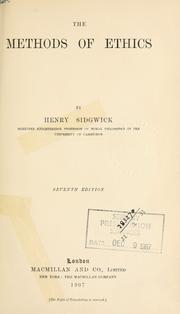In ethical philosophy, ethical egoism is the normative position that moral agents ought to act in their own self-interest. It differs from psychological egoism, which claims that people can only act in their self-interest. Ethical egoism also differs from rational egoism, which holds that it is rational to act in one's self-interest. Ethical egoism holds, therefore, that actions whose consequences will benefit the doer are ethical.
In metaphilosophy and ethics, metaethics is the study of the nature, scope, and meaning of moral judgment. It is one of the three branches of ethics generally studied by philosophers, the others being normative ethics and applied ethics.
Normative ethics is the study of ethical behaviour and is the branch of philosophical ethics that investigates the questions that arise regarding how one ought to act, in a moral sense.
Psychological egoism is the view that humans are always motivated by self-interest and selfishness, even in what seem to be acts of altruism. It claims that, when people choose to help others, they do so ultimately because of the personal benefits that they themselves expect to obtain, directly or indirectly, from so doing.
Philosophy of religion is "the philosophical examination of the central themes and concepts involved in religious traditions". Philosophical discussions on such topics date from ancient times, and appear in the earliest known texts concerning philosophy. The field is related to many other branches of philosophy, including metaphysics, epistemology, and ethics.
In ethical philosophy, utilitarianism is a family of normative ethical theories that prescribe actions that maximize happiness and well-being for all affected individuals.

Derek Antony Parfit was a British philosopher who specialised in personal identity, rationality, and ethics. He is widely considered one of the most important and influential moral philosophers of the late 20th and early 21st centuries.

Thomas Nagel is an American philosopher. He is the University Professor of Philosophy and Law Emeritus at New York University, where he taught from 1980 to 2016. His main areas of philosophical interest are legal philosophy, political philosophy, and ethics.
Galen John Strawson is a British analytic philosopher and literary critic who works primarily on philosophy of mind, metaphysics, John Locke, David Hume, Immanuel Kant and Friedrich Nietzsche. He has been a consultant editor at The Times Literary Supplement for many years, and a regular book reviewer for The Observer, The Sunday Times, The Independent, the Financial Times and The Guardian. He is the son of philosopher P. F. Strawson. He holds a chair in the Department of Philosophy at the University of Texas, Austin, and taught for many years before that at the University of Reading, City University of New York, and Oxford University.
Moral agency is an individual's ability to make moral choices based on some notion of right and wrong and to be held accountable for these actions. A moral agent is "a being who is capable of acting with reference to right and wrong."
Rational egoism is the principle that an action is rational if and only if it maximizes one's self-interest. As such, it is considered a normative form of egoism, though historically has been associated with both positive and normative forms. In its strong form, rational egoism holds that to not pursue one's own interest is unequivocally irrational. Its weaker form, however, holds that while it is rational to pursue self-interest, failing to pursue self-interest is not always irrational.

Kantian ethics refers to a deontological ethical theory developed by German philosopher Immanuel Kant that is based on the notion that: "It is impossible to think of anything at all in the world, or indeed even beyond it, that could be considered good without limitation except a good will." The theory was developed in the context of Enlightenment rationalism. It states that an action can only be moral if (i) it is motivated by a sense of duty and (ii) its maxim may be rationally willed a universal, objective law.
Jefferson Allen McMahan is an American moral philosopher. He has been White's Professor of Moral Philosophy at the University of Oxford since 2014.
An Enquiry Concerning the Principles of Morals (EPM) is a book by Scottish enlightenment philosopher David Hume. In it, Hume argues that the foundations of morals lie with sentiment, not reason.
Population ethics is the philosophical study of the ethical problems arising when our actions affect who is born and how many people are born in the future. An important area within population ethics is population axiology, which is "the study of the conditions under which one state of affairs is better than another, when the states of affairs in question may differ over the numbers and the identities of the persons who ever live."

The Methods of Ethics is a book on ethics first published in 1874 by the English philosopher Henry Sidgwick. The Stanford Encyclopedia of Philosophy indicates that The Methods of Ethics "in many ways marked the culmination of the classical utilitarian tradition." Noted moral and political philosopher John Rawls, writing in the Forward to the Hackett reprint of the 7th edition, says Methods of Ethics "is the clearest and most accessible formulation of ... 'the classical utilitarian doctrine'". Contemporary utilitarian philosopher Peter Singer has said that the Methods "is simply the best book on ethics ever written."
Personal identity is the unique numerical identity of a person over time. Discussions regarding personal identity typically aim to determine the necessary and sufficient conditions under which a person at one time and a person at another time can be said to be the same person, persisting through time.

On What Matters is a three-volume book of moral philosophy by Derek Parfit. The first two volumes were published in 2011 and the third in 2017. It is a follow-up to Parfit's 1984 book Reasons and Persons. It has an introduction by Samuel Scheffler.
Patricia W. Kitcher is the Roberta and William Campbell Professor of Philosophy at Columbia University, widely known for her work on Immanuel Kant and on philosophy of psychology. She has held many positions at different universities, is a founding chair of a committee at the University of California, and has a lead role in multiple professional organizations. Kitcher's most notable interests throughout her career regard cognition and Kantian ethics. She is the author of multiple papers and two books.
The teletransportation paradox or teletransport paradox is a thought experiment on the philosophy of identity that challenges common intuitions on the nature of self and consciousness, formulated by Derek Parfit in his 1984 book Reasons and Persons.





